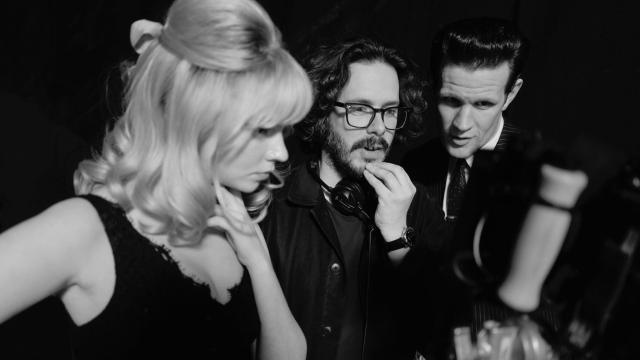When Edgar Wright makes a movie, you know it’s going to be interesting. His first big film was a zombie romantic comedy. He followed that up with a suburban-set love letter to action films. He’s made movies about alien invasion bar crawls, baby driving, and defeating seven evil exes. His latest film though is unlike any that’s come before — and Gizmodo got to ask him all about it (and more).
Last Night In Soho, which opens November 19 in Australia, came from Wright’s desire to both make a movie in his hometown of London, but also explore how people perceive the town’s history. And he wanted to do that using a woman’s perspective. So he conceived the story of a young girl (Ellie, played by Thomasin McKenzie) who comes to London with a unique supernatural talent that eventually allows her to see the life of another woman (Sandie, played by Anya Taylor-Joy) who existed in the 1960s. It’s a mystery film, it’s a supernatural film, it’s a horror film, a commentary on society and so much more.
Earlier this week, Gizmodo did a video chat with the director of Shaun of the Dead, Scott Pilgrim vs. the World and others, to discuss the wild journey Last Night in Soho had to the big screen. We also discussed what it was like making something so different from his other films, the logistics of the character’s supernatural journeys, why he’d love to make a musical, and even touched on Attack the Block 2, his contribution to George Miller’s upcoming Mad Max prequel, Furiosa, and the lesson he learned by leaving a certain small Marvel movie.
Note: Spoilers for Last Night In Soho ahead.
Germain Lussier, Gizmodo: Congrats on finally getting this movie out. I bet it feels like forever, right?
Edgar Wright: Well, I mean, yes and no. I mean, it’s funny. People sort of said to me, “Oh, you must have been so disappointed with the push.” And I was like, “Well, no.” I mean, when it was originally scheduled for April, British cinemas weren’t even open. British cinemas closed between Halloween and May and Quiet Place 2, I think, was the first film back. So we were the people who pushed it to October because I felt, and hopefully you agree, that it was a good fall film. It felt like the kind of film that needs to come out when the nights are getting longer.
io9: Oh, absolutely. I mean, it’s obviously not a straightforward movie in any way, and when I was reading about the development of it, that kind of made sense. You first had this idea years ago, pitched it, had somebody do a bunch of research, then you went away and made some other movies, then Krysty [Wilson-Cairns] came on and she had a similar Soho life experience, minus the supernatural stuff. It had quite the road to reality. So, looking back on all of that, did anything about the process surprise you and could this movie have happened in any other way?
Wright: Actually, this story that I came up with and also pitched to Nira Park and Film 4 like 10 years ago and talked to Krysty about in 2016 when I met her when I was editing Baby Driver, the story never changed. The story is what is in cinemas this weekend. I guess what kind of happened is it just kind of got kind of deeper and more expansive both in terms of the research that was done. So I’d sort of done the plot outline, but we hired an amazing researcher, Lucy Pardee, who is also now a BAFTA-winning casting director. She was the casting director actually on Fish Tank and Rocks, but she also was a researcher. What it was I wanted to, with the research is just… it’s a fantastical film but obviously, there are some serious issues in it. And also I wanted to just research the history of the area and actually get some kind of real stories and real testimonials because back then, unlike now, where victims quite rightly have the forum to speak but back then, that wouldn’t happen. Even if you didn’t want to tell their story, the press wouldn’t print it. So kind of like a number of very sort of tragic tales have probably been lost to the mist of time forever.
So it was sort of grounding, having a knowledge of the darker side of Soho in a more factual way rather than just wicked whispers. And Krysty coming on board was an amazing thing because as soon as I met her, I think in the back of my head, I sort of knew where it was going. First, I told her the plot, sort of as a sounding board. We went out on like a crawl of Soho haunts — “haunts” being the operative word — and I just wanted to see what she thought of the story. Then maybe about nine months later, I was wrapping up press on Baby Driver and called her from Los Angeles and said “Would you like to write it with me?” But it’s partly because she told me about her experiences living and working in Soho as a 21-year-old. I just thought, “Oh God, I have to write it with her.” And luckily, she’s a great writer and maybe even more crucially, she’s really fun to hang out with. [Laughs]
io9: Oh, that’s always good.
Wright: Yeah, it was good. Meeting someone you like spending a lot of time with is always the key to a good collaboration.
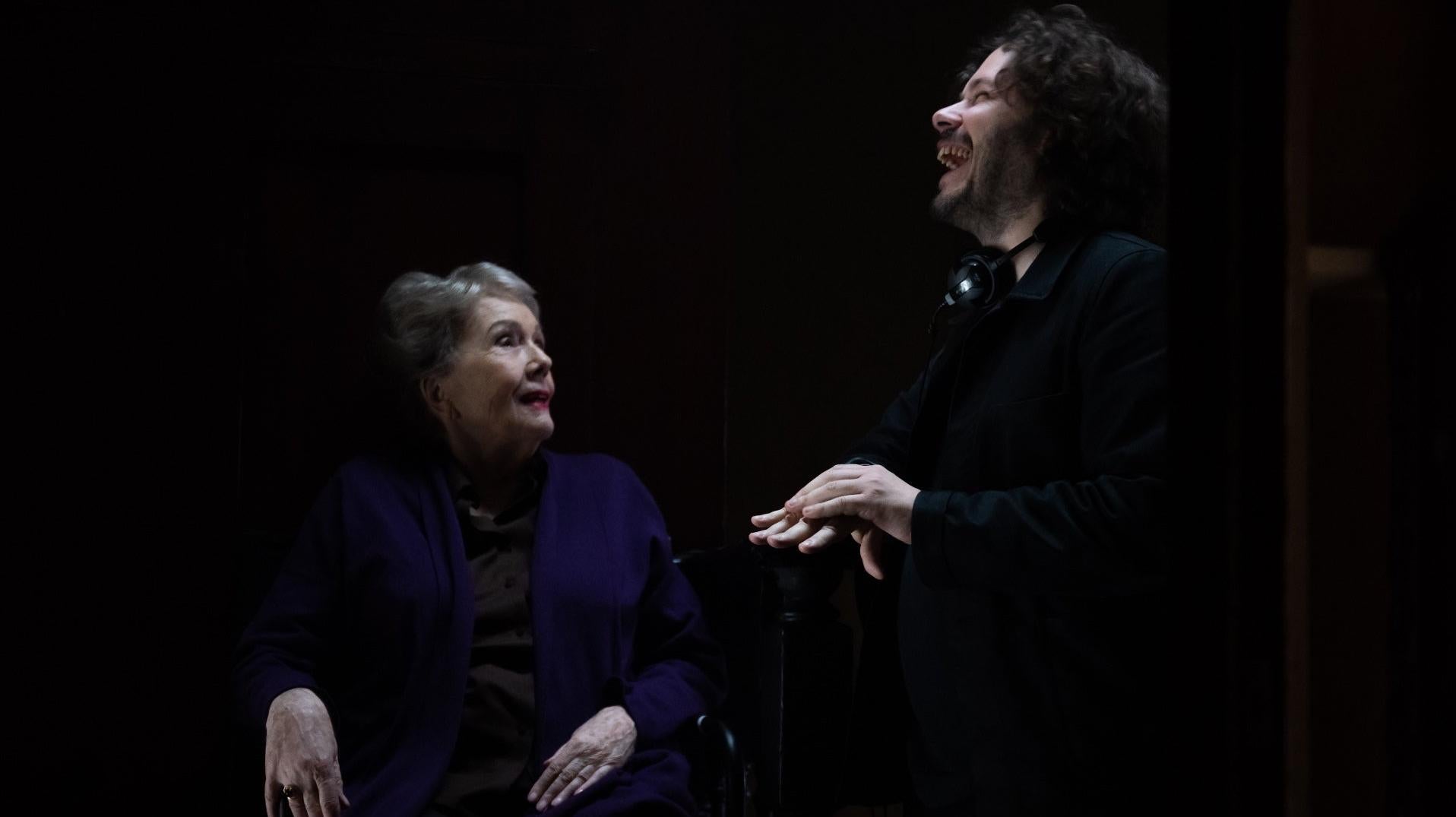
io9: Now, obviously, this movie has your visual style, but it’s so different tonally from everything else you’ve done, especially Baby Driver coming off of that. So I know you had the idea way before that, but how much did just wanting to spend a few years in a different mood play into your choice to make this?
Wright: I mean, it’s a big part of it because a film takes kind of three years, for me at least, like in terms of like development, shooting it, promoting it, it’s a sort of minimum three years. And I think the thing is, is that when you come out of that process, the idea of doing the same thing again doesn’t appeal. You know, I’m massively proud of Baby Driver and I’d like to return to that sort of tone and that kind of energy. But when you’ve just finished talking about it, I can understand in a way when Daniel Craig did that interview after Spectre and they said “Will you play Bond again?” and he said “I’d rather slash my wrists.” That wasn’t the right thing to say at the time, but they asked him at the wrong time. So it’s that strange thing where at the end of a year-long Baby Driver press tour where people are saying “So Baby Driver 2?” and it’s like, “Can we talk about that later? I really need to cleanse my palate and just do something different.”
And the thing is, I had this project waiting in the wings. I really wanted to do something in this genre. I really wanted to make a film in central London because my UK films, the films I did with Simon [Pegg] and Nick [Frost], which I’m very proud of, [are linked to other areas]. So I wanted to do something different in my home city and do something that was really ambitious to do on a number of levels and a challenge. So it is something where I feel very grateful to be given the opportunity to make original movies and to try something different because I know that sometimes that doesn’t always happen. So I kinda had to take the opportunity with both hands.
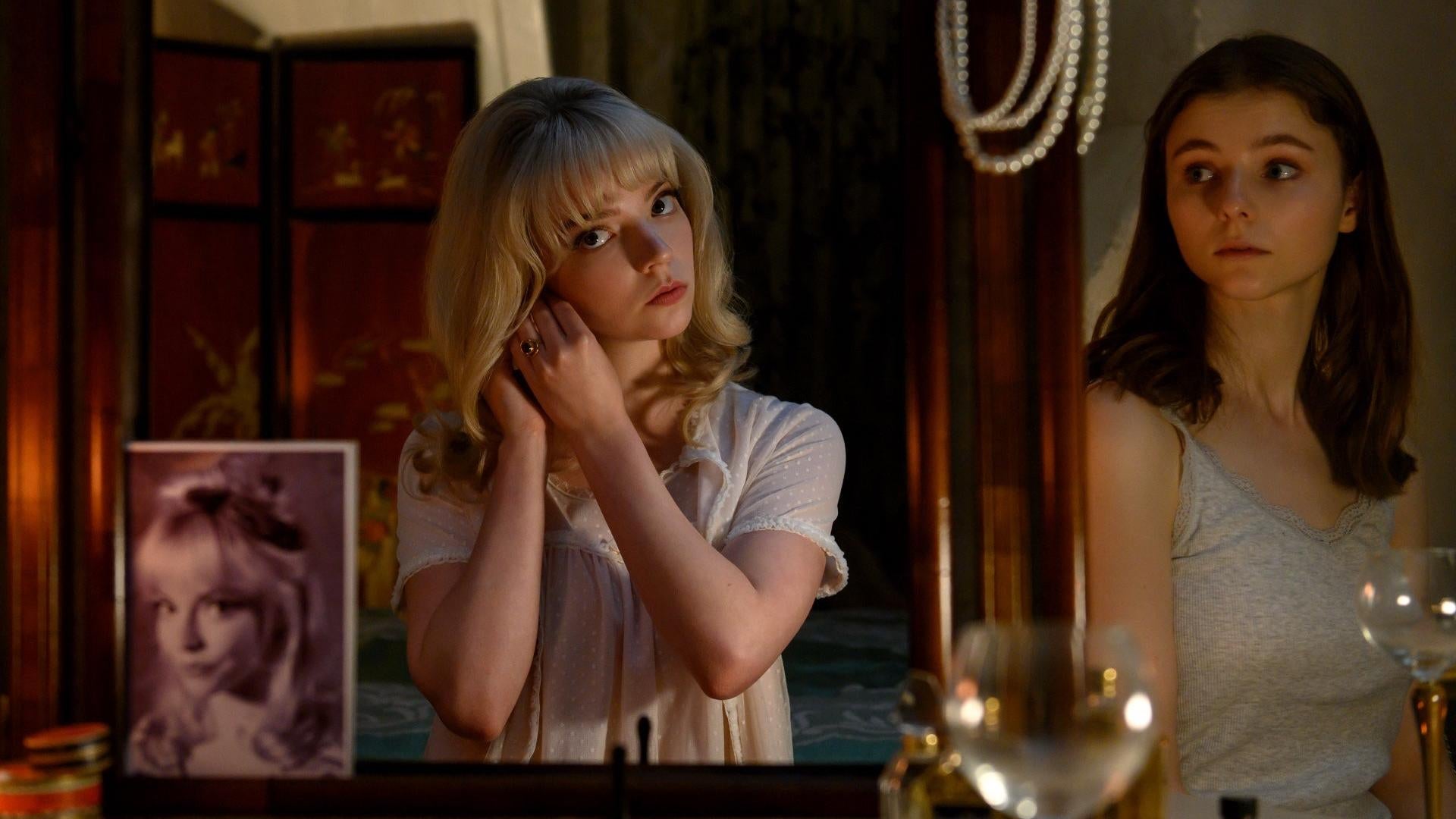
io9: Totally. Now watching the movie, and I’ve only seen it once, but it’s never 100% clear if Ellie is actually inside Sandie or if she’s kind of watching her. And I was wondering if you could talk about the decision to leave the actual kind of time travel, possession, logistics a little ambiguous. Or is it even ambiguous in your eyes?
Wright: Well, I guess in a way, it’s something where it’s like unexplained in the sense that she has a gift that she can’t even articulate. In the same way that like, I say this in terms of trying to explain the unexplainable, in the sense of like, if you were living in a house that you believed to be haunted and in your dreams, you were in the body of the previous inhabitant of the flat, you’re still in a dream. And in a sense, aside from any of the kind of genre allusions, to be honest, those sequences are sort of based on dreams that I have. Dreams where I am somebody else. I look in the mirror and I’m somebody else. I see myself sort of in place of that person. So it’s that thing where these are kind of like perspective shifts, where she’s kind of living the life of somebody else in her dreams. So she’s reliving the memories.
It sort of ties into this idea about, like there are two theories of ghosts. One is that there are ghost souls that are left on Earth in purgatory with unfinished business. Or the other idea is this idea that paranormal activity itself, or poltergeists, is like the echo of an event. It’s the residue of something that’s left behind. So it’s like if you were in a room and you knew a murder had happened in that room, is there anything left behind by that? So basically she has these kind of extraordinary supernatural powers, which she can’t quite comprehend other than she believes them very vividly. They’re so vivid to her that she understands that she’s reliving somebody else’s memories. So we sort of have this thing where she is sometimes an observer and a voyeur, then in certain moments where the emotional wave is riding high, she sort of jumps into the body. And in some cases, there are moments where she is maybe trying to avert something happening, which is obviously impossible to do. So it’s not a time travel film. It’s only a time travel film in the sense that it partly takes place in the ‘60s, but she is not Doctor Who or Marty McFly. And she can do nothing. To me, where the dream turns to a nightmare is where she could go back, but she cannot change the future.
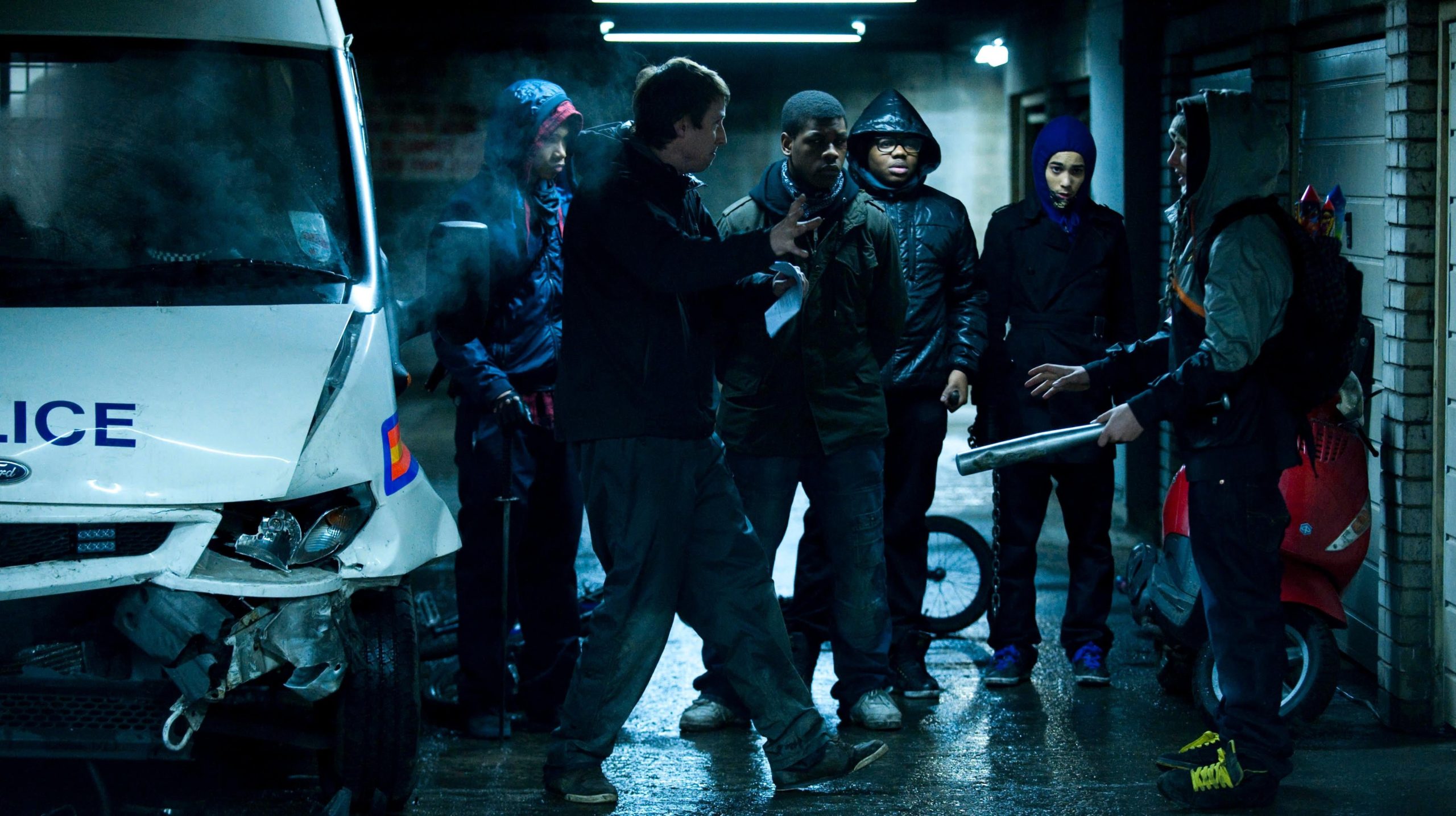
io9: Interesting. All right. That’s a great answer. In the last couple months, we got the exciting news that Joe Cornish is coming back to do Attack the Block 2. Are you still producing and what’s the status of that?
Wright: I’m not as involved in this one. Like, to be honest, on the previous one, my role was really just helping it get made by attaching my name to it. Joe doesn’t really need any help from me. [laughs] In the case of that and not dissimilar to the film Sightseers, I was as a producer, kind of helping someone get finance. In this case, they don’t need my help like that. So I’m just excited that they’re returning to that and excited that John Boyega is [back]. It basically came out of the two of them wanting to do it together. And obviously, Michael Ajao (who played Mayhem) is in Last Night In Soho. So I’m kind of excited [for him]. I think most of the cast, as far as I know, are returning.
io9: It’s so exciting. Meanwhile, as we were waiting for this release your name has been attached to so many things. Obviously, we mentioned Baby Driver 2, but also The Running Man and something calledStage 13 and Set My Heart to Five. What can you tell me about those and which, if any, do you think might be something you do next?
Wright: Well, there is a question I genuinely cannot answer, and it’s not like a bullshit none answer, me being cagey. It’s more the fact I’ve been on this 10-month press tour with Sparks Brothers and Last Night In Soho and in both a metaphorical sense and a very literal sense, I need to have a clean desk. The problem is it’s very difficult to kind of think about [more than one thing]. I mean, I take my hat off to those people who can. I don’t know how Ridley Scott does it — maybe he doesn’t do as much promotion so he can be already shooting another movie before the first one comes out. I am not that person. And in fact, this year, having two movies out is the only time I’ve ever successfully multitasked. So the honest answer is, I don’t know. That’s one part of it.
The other part of it is having nearly made a movie before which I did not, I have no regrets about not making the movie, the only thing I have regrets about was doing interviews for a movie which then I didn’t make. The fact those interviews are still out there… that pains me more than leaving the movie. [Laughs] So I have this superstitious thing now that’s like “Edgar, never do an interview about anything until it’s in the can.” That said, I have some great things in development. And basically, once this is out and I’m done, that’s what I’m going to be knuckling down to before Christmas, is just kind of working out which one is next. They’re all great potential projects.
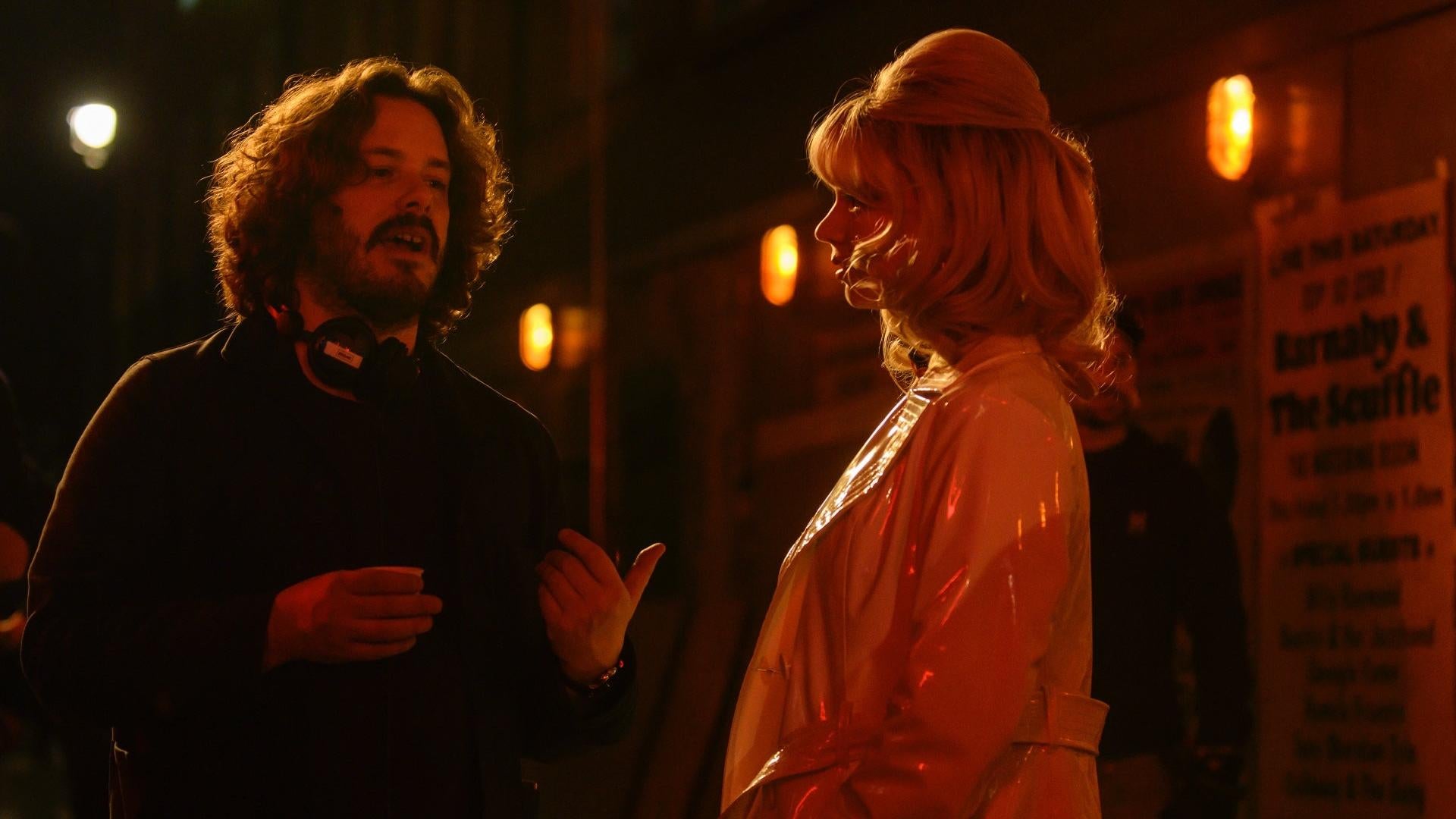
io9: And then another other cool story that came out of this movie is that you showed George Miller an early cut, and that’s kind of how Anya Taylor-Joy got the role of Furiosa. What was that like?
Wright: I’d known about that for like about a year before it was announced. So I felt like I was privileged to this cool information that nobody knew about. But yeah, I sent George the movie the day before London locked down and I remember very vividly because he watched the film at Working Title. We went around the corner to a restaurant — the restaurant was deserted because people are already starting to pack up and go home — and a.) I was talking to another director about my movie and b.) talking to a doctor about a pandemic. And then he said, “What was Anya Taylor-Joy like to work with?” And I said, “Oh, she’s amazing.” And he said, “You know, because I’m casting Furiosa at the moment.” I said, “Stop. You found her. She’s going to be a megastar.” I genuinely said those words, I’m not kind of doing some revisionist history. So I’m essentially saying that I want the commission for Furiosa. A finder’s fee.
io9: Maybe they’ll cast you as one of the War Boys.
Wright: The thing as well with Anya, it’s funny, people have said to me, “Oh, how did you feel when she blew up in The Queen’s Gambit?” And I said, “Honestly, with Anya, it wasn’t a matter of if, if it was a matter of when.” I felt like she was going to be huge when I saw The Witch. That’s why I had coffee with her in 2015 and, we were talking about this the other day, I told her the entire plot of Last Night in Soho six years ago over coffee, just around the corner in Los Feliz. It was the first time we ever met and I told her the entire plot of the movie. She goes, “Oh wow, I want to be in that film.”
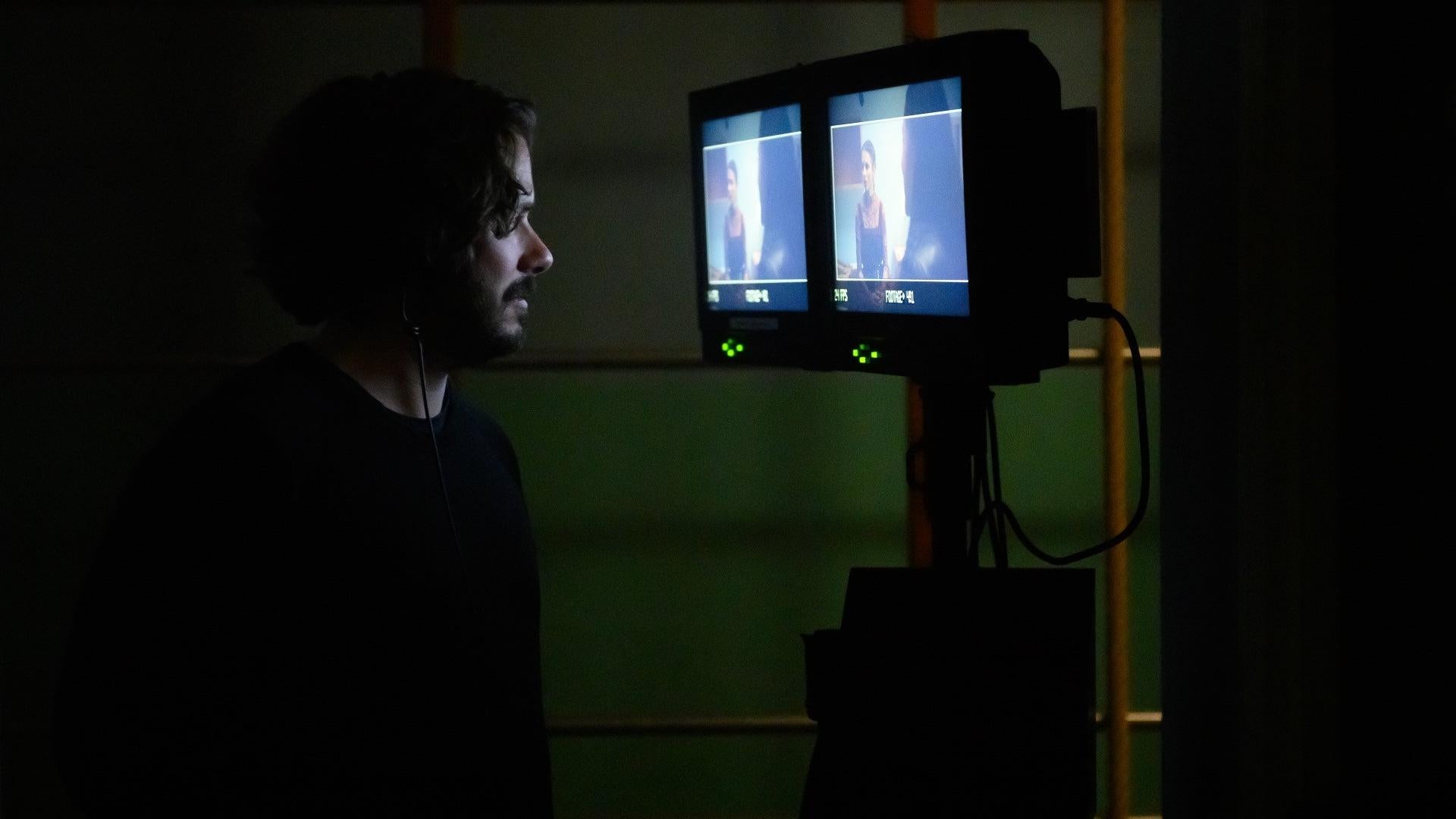
io9: That’s awesome. OK, last thing, what’s something you learned making Last Night in Soho that you’ll use in whatever you make next?
Wright: Oh, I mean, it’s not something so much that I would use again because, in a strange way, that’s tough with films. But it’s that thing, I’ve heard like Quentin Tarantino talk about this, he says, sometimes when you’re making a movie, you get to the end of the shoot and the crew is all firing on all cylinders. It’s like, “We know how to do this.” And I remember he said that at the end of Kill Bill he felt like he could go on and just make another one straight away. But of course, you can’t. And everyone goes off and does separate things. So there is that thing where I feel funny about Soho in that I’m so excited it’s coming out and I’m so excited it’s coming out day and date in the UK and U.S. and for people to see this thing that we’ve been working on for so long and we’re really proud of. But there’s also this feeling like a kid is leaving home. And so I know I’m going to feel sad on Monday. It’s like “Now what am I going to do?”
But the things that I really enjoyed doing in this, I’m not saying I’ll necessary [use this again], but like doing the period stuff was so immersive and fascinating just for everybody, like myself and Marcus Rowland the production designer and Chung Chung-hoon [the Director of Photography] and working with the Odile Dicks-Mireaux, the costume designer, Lizzy Georgiou [the makeup artist], that part of it was amazing. It’s funny, I guess in other movies that I’ve done, like Shaun of the Dead has choreographed sequences in it, so does Scott Pilgrim, so does Baby Driver, it’s all choreographed. But it was actually fun in this movie doing like a flat-out dance number. It wasn’t like a dance number with something else happening. They’re just dancing, and something like that was just so joyous and thrilling to make. So, lots of people have said to me, “When are you going to do a musical?” And I was like, “Well, if I found the right one, I’d do it.” So that would be such a joy.
Last Night in Soho is in theatres on November 19.
